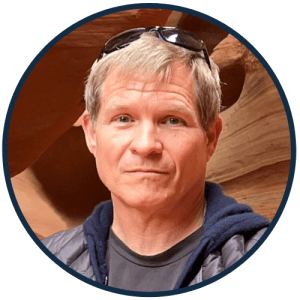Challenges and opportunities for high-complexity flow cytometry in clinical trials
Join us for a thought leadership Panel discussion where we will unravel the complexities and potentials of incorporating flow cytometry endpoints in clinical trials with today’s leading experts.
Flow cytometry stands at the forefront of innovation in clinical research due to its capacity for detailed cellular analysis. However, with this potential comes a set of challenges that can impact trial outcomes.
What will you learn?
- Challenges affecting clinical trials with flow endpoints:
- Global trial management: addressing logistical issues related to sample handling and transportation on a global scale and standardizing instrumentation across diverse trial sites to ensure data consistency and reliability.
- Instrumentation complexity: navigating the intricacies of instrument compensation and unmixing within high-complexity panels, especially given patient-to-patient variability.
- Data consistency: maintaining robust data analysis and reporting across different patient cohorts and time intervals to ensure meaningful trial results.
- Opportunities for success in clinical trials:
- Advanced instrumentation: exploring the advantages of spectral versus conventional instrumentation in capturing comprehensive data.
- AI integration: leveraging artificial intelligence to enhance flow cytometry analysis, increasing precision and reducing manual errors.
- Evolving modalities: recognizing the growing necessity for flow cytometry in complex modalities, such as CAR-T cell therapies and multi-specific T cell engages.
- Diagnostics and monitoring: utilizing flow cytometry in diagnostic studies and immune monitoring trials, including minimal residual disease analysis and biomarker monitoring.
Who this may interest?
- Clinical researchers
- Clinical operations
- Clinical flow cytometrists at pharmaceutical and biotech companies globally
Speakers
 Jonni S Moore, PhD
Jonni S Moore, PhD
Professor, Pathology and Laboratory Medicine, Faculty Director, Penn Cytomics
Perelman School of Medicine at the University of Pennsylvania (PA, USA)
Jonni Moore is the immediate Past President of the International Society for the Advancement of Cytometry. She founded Penn Cytomics at the University of Pennsylvania and has been its faculty Director for over 30 years. She also founded and led the Clinical Cytometry Laboratory at the Hospital of the University of Pennsylvania for 20 years, placing her in the unique position of having extensive knowledge in discovery, translational and clinical cytometry. An internationally recognized expert in cytomics, she focuses on the movement of novel translational assays to the clinical arena, developing new flow cytometric tests in the areas of toxicology, oncology, hematology and cardiology.
 Steven Eck, PhD
Steven Eck, PhD
Director, Flow Cytometry Group Lead, Integrated Bioanalysis, Clinical Pharmacology and Safety Sciences R&D
AstraZeneca (MD, USA)
Steven did his PhD and postdoctoral work in Immunology at the University of Pennsylvania. He has spent the past 14 years at AstraZeneca and currently leads a group responsible for preclinical and clinical trial flow cytometry bioanalysis across the portfolio. He also co-chairs the Flow Cytometry Action Program Community within the bioanalytical community of the American Association of Pharmaceutical Scientists (AAPS) and has authored multiple best practice papers on the regulated use of flow cytometry assays including serving as the Analytic Method Validation chapter Editor for the Clinical Laboratory Standards Institute (CLSI) Guideline: H62-Validation of Assays Performed by Flow Cytometry.
 Brandon Walling, PhD
Brandon Walling, PhD
Director of Global Flow Cytometry
Champions Oncology, Inc. (NJ, USA)
Dr Walling oversees a global team of highly trained scientists and research associates in Champion Oncology’s Flow Cytometry program. To date, Brandon has overseen the completion of over 100 clinical and preclinical flow cytometry studies, the development and validation of multiple novel flow cytometry panels, and the global expansion of Champion Oncology’s Flow Cytometry program to a European facility located near Milan in Bresso, Italy.
Prior to this role, Brandon completed a post-doctoral fellowship at the National Institute of Allergy and Infectious Diseases (NIAID; MD, USA) under the tutelage of Dr Philip Murphy. While at the National Institutes of Health, Brandon investigated laminopathies and their role in neutrophil migration and identified potential novel regulators of neutrophil differentiation.
Brandon received his PhD from the department of Microbiology and Immunology at the University of Rochester Medical Center (NY, USA) in 2018. In his thesis work, he characterized a novel form of T-cell migration and explored the mechanism by which T-cell signaling mediates migration through interactions between adhesion molecules and the cytoskeleton.
This webinar was recorded on the 4th of December 2024.
In association with:

